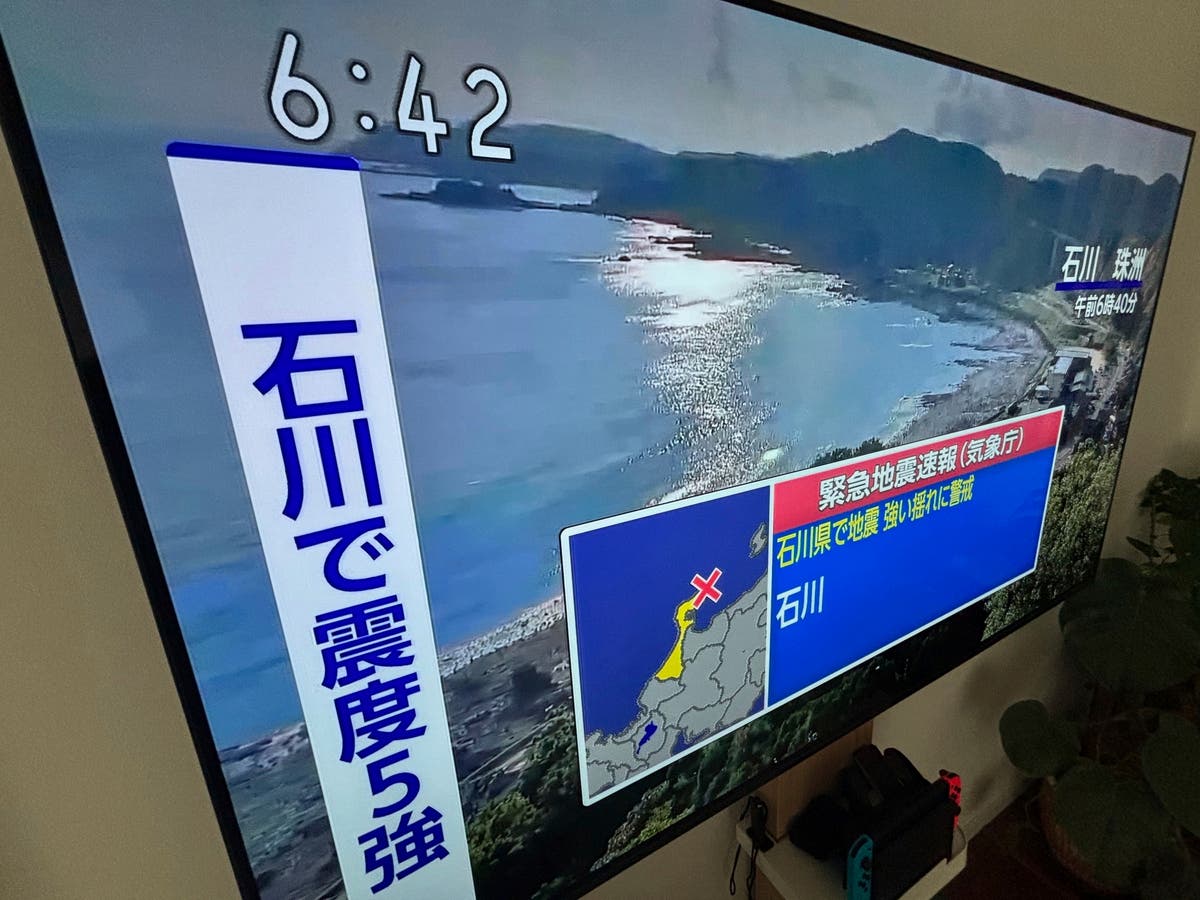
Real support
Independent Press
Our mission is to provide unbiased, fact-based reporting that holds power to account and exposes the truth.
Whether it’s $5 or $50, every contribution counts.
Support us to provide journalism without an agenda.

A powerful earthquake measuring 7.1 on the Richter scale struck southwestern Japan on Thursday, triggering tsunami warnings for several of the country’s western islands and causing mostly minor injuries.
The Japan Meteorological Agency said the quake struck off the coast of Miyazaki Prefecture at 4:42 p.m. local time (7:42 a.m. GMT), at a depth of about 18 miles (29 kilometers).
Officials said nine people were injured on the island of Kyushu, but most sustained minor injuries. No major damage was reported, and tsunami warnings were later lifted.
Earlier, Japan’s seismologists said the quake measured 6.9 on the Richter scale, before it was revised to 7.1. Officials issued a tsunami warning and asked residents in the coastal prefectures of Kochi and Miyazaki to evacuate their homes as a precaution until the warning was lifted.
But the quake prompted seismologists to hold an emergency meeting in which they reassessed and raised the risk level of major earthquakes associated with the Nankai Trough area in eastern southern Japan.
Japan’s Meteorological Agency on Thursday issued its first-ever warning of a major earthquake along the country’s Pacific coast, following a quake that struck Kyushu.
Japanese Prime Minister Fumio Kishida has cancelled plans to visit Central Asia for summits with regional leaders after meteorologists said the risk of a major earthquake on the Pacific coast was higher than usual, public broadcaster NHK said.
Although the warning does not indicate such an earthquake will definitely occur, Japan plans to cancel Kishida’s trip in order to prepare for any emergency, but hopes to hold some meetings online instead, NHK added.
The visit to Kazakhstan, Uzbekistan and Mongolia was originally scheduled to run from Friday to Monday. Mr. Kishida was scheduled to travel to Kazakhstan on Friday, followed by a visit to Uzbekistan before heading to Mongolia for a summit on Monday.
Japan’s Meteorological Agency has warned of the possibility of a major earthquake in the Nankai region, an ocean trench that runs along Japan’s Pacific coast, where previous quakes have triggered massive tsunamis.
Japan estimates the chance of a magnitude 8 or 9 earthquake hitting the basin in the next 30 years at 70 to 80 percent, according to the infrastructure ministry.
Advisories are issued instead of warnings when waves are not expected to exceed 1 metre (3.3 feet) high, meaning they are relatively minor but still pose a danger.
Unconfirmed videos on social media showed cars and small structures shaking, and several shops damaged.

Japan’s public broadcaster NHK said Miyazaki Port recorded waves of 20 inches, the highest so far.
The Miyazaki police chief told the broadcaster they were checking whether there was any structural damage to the buildings, but so far no damage has been reported.
AFP quoted a Japanese government statement as saying that it had formed a special task force to respond to the two quakes. There were no immediate signs of serious damage.
Japan, one of the world’s most tectonically active countries, has strict building standards aimed at ensuring that structures can withstand even the strongest earthquakes.
The country records more earthquakes, about 1,500 per year, than any other country.
In 2011, Japan recorded its largest earthquake in history, measuring 9.0 on the Richter scale. The quake was centered just off its northeastern coast and generated a massive tsunami that left an estimated 18,500 people dead or missing.
The disaster also caused three nuclear reactors at the Fukushima nuclear plant to melt down, causing Japan’s worst disaster since World War II and the most serious nuclear accident since Chernobyl.
Additional reports by agencies

“Travel specialist. Typical social media scholar. Friend of animals everywhere. Freelance zombie ninja. Twitter buff.”





More Stories
Taiwan is preparing to face strong Typhoon Kung-ri
Israel orders residents of Baalbek, eastern Lebanon, to evacuate
Zelensky: North Korean forces are pushing the war with Russia “beyond the borders”